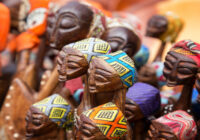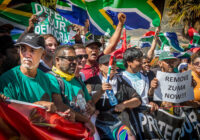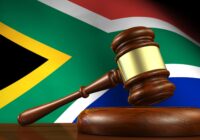Botswana is the model of democracy, good governance and pragmatic policy. In the words of The Economist Foreign Editor Robert Guest, the country has “been governed sensibly, cautiously, and more or less honestly” since its independence. In an age where democracies have been backsliding, Botswana has maintained its democratic reputation and continued to engage stakeholders down to the rural level of governance through its Kgotla system. This political culture is based on public meetings, community councils and traditional law courts. It continues to promote confidence in the country’s institutions and governance.
Though its strong principles have propelled the country through decades of political and economic success, Botwana’s responses to current struggles will determine whether this success will continue. The greatest challenges include the ruling party’s diminishing dominance and economic fault lines.
Botswana is the oldest continuous multiparty democracy in Africa. Its democratic roots trace back to the colonial era, when the British only exercised indirect rule over its Bechuanaland Protectorate. This allowed its indigenous institutions and leadership of its chiefs to flourish.
Seretse Khama, Botswana’s first president and pioneer of the Botswana Democratic Party (BDP), came to power at the country’s founding in 1966. While in office, he translated those effective tribal structures into Botswana’s post-independence governance. He prioritized the role of local leaders, upheld protections for citizens and secured freedom of expression for the media.
After his death in 1980, the legacy of the BDP has carried on — the party has won every general election since. Ironically, this means that despite Botswana’s status as a thriving multiparty democracy, only one party has ruled throughout the country’s 57-year history. Today, this legacy of BDP dominance is challenged by Khama’s son, Ian.
The BDP’s dwindling dominance
Upon his death, Seretse Khama passed the office to Vice President Ketumile Masire, who reigned from 1980 to 1998. Festus Mogae, his vice president starting in 1992, took command from 1998 to 2008. Then Ian Khama took over for him from 2008 to 2018. As per the constitution, after serving his maximum two five-year terms, Khama relinquished power to his Vice President, Mokgweetsi Masisi. Against the backdrop of this legacy of succession within the BDP, support for opposition parties had steadily grown, with 45% of the popular vote in favor of all opposition parties combined, against a dwindling 53% for the BDP.
A falling out between President Masisi and Ian Khama further fueled this rise in opposition support. Khama claims that Masisi has “totally undermined democracy, human rights, [and] the rule of law” since becoming president. Khama resultantly departed from the BDP to form a new political party: the Botswana Patriotic Front (BPF). The strife between these politicians came partly from Masisi’s refusal to appoint Ian’s brother, Tshekedi Khama, as vice president in 2019, among other requests that would give Ian a more active role in Botswana’s leadership.
This splintering of the BDP and Khama’s opposition against Masisi could challenge the party’s dominance ahead of October’s upcoming general elections. If the opposition parties are able to overcome factionalism and slightly increase their popular support, 2024 may mark the end of the 57-year legacy of the BDP’s rule in Botswana.
An end to diamond dependency?
Post-independence, Botswana’s consistent economic growth was driven almost entirely by its most precious resource: diamonds. Alongside the partially state-owned De Beers Group, Botswana established Debswana, a joint venture that quickly grew to become one of the world’s largest diamond suppliers by value. Botswana’s rich diamond reserves fueled decades of growth — the best in the region. However, the slow pace of diversification has kept Botswana’s economy dependent on diamond revenue.
In the first quarter of 2024, Debswana’s diamond sales fell 48% due to decreased demand and competition from lab-grown diamonds. This came with major consequences including rising unemployment and economic uncertainty. This uncertainty has only been exacerbated by the BHP mining group’s recent takeover attempt of Anglo American, the majority shareholder of De Beers. This triggered a hasty attempt by Anglo American to sell its majority stake in De Beers. The groups held many negotiations entailing complex restructuring that would directly impact their work in Botswana.
Although the acquisition attempt failed, it underscores the extent of exposure Botswana’s government has to De Beers and other major players in the diamond space. Not surprisingly then, despite its strong GDP per capita numbers, more nuanced economic indicators point in a different direction. For example, the country’s score for socioeconomic development in the Bertelsmann Transformation Index (BTI) has recently fallen from five points out of ten to four, due to extremely high income inequality. This is further underlined by a Gini index score of 53.3 and a high poverty rate of 38%.
Hoping to limit this diamond-dependency and trigger growth in high-value sectors that were stifled by the Covid-19 pandemic, Botswana has adopted the Reset Agenda. This project aims to accelerate economic diversification, empower youth and increase employment opportunities. Further, it attempts to promote local industry and economic self-sufficiency through import bans of fresh produce and water; the government seeks to use this to develop economic resilience and prepare for extreme weather conditions caused by climate change. Given the country’s high dependence on rain-fed agriculture, it is particularly vulnerable to changes in rainfall and droughts.
Simultaneously, Botswana’s strong financial institutions are promising indicators that the country has the tools required to overcome looming economic turmoil. Its robust banking system and relatively effective monetary stability from the Bank of Botswana exemplify this. Still, diversification and inequity remain pressing issues that will undoubtedly persist for years to come. They will be central issues in the upcoming general elections, which are shaping up to be the most competitive in the nation’s history.
[Lee Thompson-Kolar edited this piece.]
The views expressed in this article are the author’s own and do not necessarily reflect Fair Observer’s editorial policy.
Support Fair Observer
We rely on your support for our independence, diversity and quality.
For more than 10 years, Fair Observer has been free, fair and independent. No billionaire owns us, no advertisers control us. We are a reader-supported nonprofit. Unlike many other publications, we keep our content free for readers regardless of where they live or whether they can afford to pay. We have no paywalls and no ads.
In the post-truth era of fake news, echo chambers and filter bubbles, we publish a plurality of perspectives from around the world. Anyone can publish with us, but everyone goes through a rigorous editorial process. So, you get fact-checked, well-reasoned content instead of noise.
We publish 2,500+ voices from 90+ countries. We also conduct education and training programs
on subjects ranging from digital media and journalism to writing and critical thinking. This
doesn’t come cheap. Servers, editors, trainers and web developers cost
money.
Please consider supporting us on a regular basis as a recurring donor or a
sustaining member.
Will you support FO’s journalism?
We rely on your support for our independence, diversity and quality.










Comment